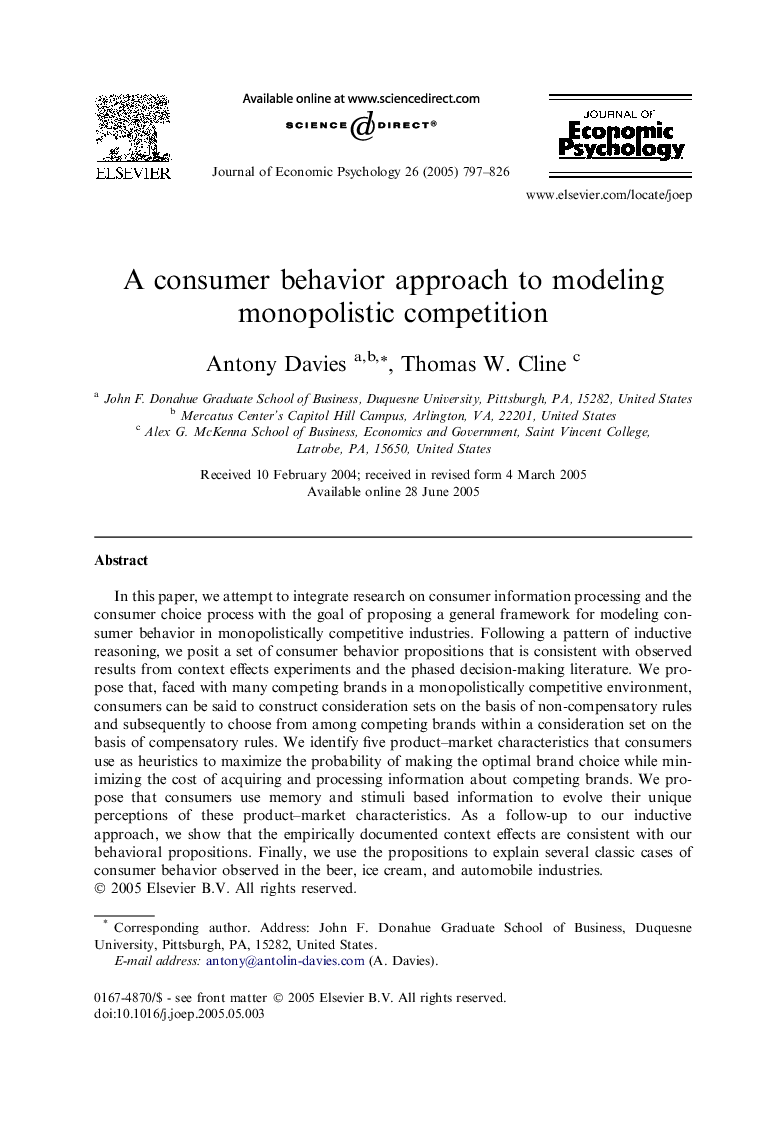| Article ID | Journal | Published Year | Pages | File Type |
|---|---|---|---|---|
| 10438497 | Journal of Economic Psychology | 2005 | 30 Pages |
Abstract
In this paper, we attempt to integrate research on consumer information processing and the consumer choice process with the goal of proposing a general framework for modeling consumer behavior in monopolistically competitive industries. Following a pattern of inductive reasoning, we posit a set of consumer behavior propositions that is consistent with observed results from context effects experiments and the phased decision-making literature. We propose that, faced with many competing brands in a monopolistically competitive environment, consumers can be said to construct consideration sets on the basis of non-compensatory rules and subsequently to choose from among competing brands within a consideration set on the basis of compensatory rules. We identify five product-market characteristics that consumers use as heuristics to maximize the probability of making the optimal brand choice while minimizing the cost of acquiring and processing information about competing brands. We propose that consumers use memory and stimuli based information to evolve their unique perceptions of these product-market characteristics. As a follow-up to our inductive approach, we show that the empirically documented context effects are consistent with our behavioral propositions. Finally, we use the propositions to explain several classic cases of consumer behavior observed in the beer, ice cream, and automobile industries.
Related Topics
Social Sciences and Humanities
Business, Management and Accounting
Marketing
Authors
Antony Davies, Thomas W. Cline,
